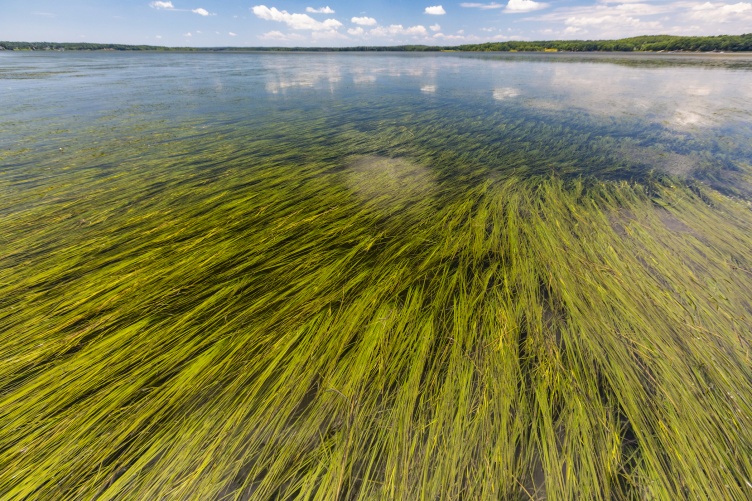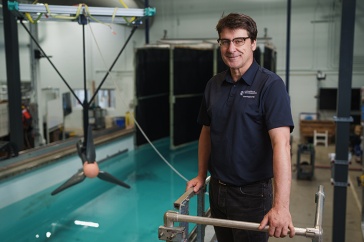
Photo by Jerry Monkman.
Eelgrass, the flowering plant whose underwater meadows provide a range of benefits for marine organisms and humans, has declined significantly in the Great Bay Estuary in recent decades. A new grant led by Bill McDowell, professor of natural resources and the environment, aims to understand how changes in water quality — with a particular focus on nitrogen and sediments — affect eelgrass health. The research, funded by a $550,000 grant from the National Oceanic and Atmospheric Administration (NOAA), combines modeling and field observations and will ultimately help inform management tools that ensure the health of eelgrass and the estuary.
Anna Lowien, a UNH Ph.D. student and Margaret A. Davidson Fellow at the Great Bay National Estuarine Research Reserve (GBNERR), will help lead the project, along with GBNERR manager Cory Riley. Kalle Matso of the Piscataqua Region Estuaries Project, part of UNH’s School of Marine Science and Ocean Engineering, is a lead collaborator on the three-year project, which also includes researchers from N.H. Department of Environmental Services, University of Massachusetts at Dartmouth as well as UNH.
-
Written By:
Beth Potier | UNH Marketing | beth.potier@unh.edu | 2-1566
















































